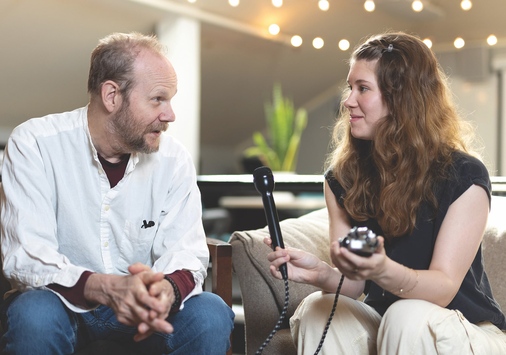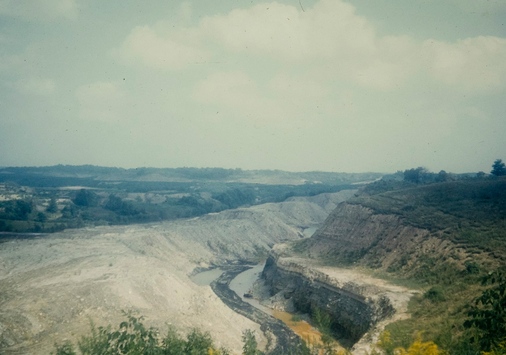
For journalist and West Virginia native Molly Born, returning to her home state to report on stories in the state’s southern coalfields was about giving voice to communities that needed to be heard.
“West Virginia has its share of problems, but it is a beautiful place, rich in history, that’s full of some of the kindest and most resilient folks you will ever meet. It’s much more diverse than people think, by about every measure,” says Born, who has covered stories in the state about water access and quality issues, public health, politics and the historic teacher strike in 2018.
Born, who is Denison’s “Writing in Place” Mellon Fellow, had three pieces of wisdom to share during her talk at the Denison Museum to Journalism-affiliated students in March. They were lessons learned from her year living in Mingo County, West Virginia, as one of the first Report for America fellows, reporting radio and web stories for West Virginia Public Broadcasting, the state’s NPR member station. The first of them was that you shouldn’t be afraid to take risks.
Born took a gamble leaving Pittsburgh Post-Gazette where she had worked as a staff writer for six years to return to her home state and report on the southern coalfields including those in Mingo County, West Virginia, on a reporting fellowship in a brand new program. She had to take a pay cut and face the trepidation of her family and friends for moving back to an often misunderstood area.
It was a difficult move for Born – especially because she was moving to a place where she didn’t know anyone and her nearest coworker was 90 minutes away – but she says getting to tell the stories of her diverse and oft-misrepresented home state was worth it.
Her second piece of advice was to always allow yourself to be surprised and delighted in the direction a story goes. Part of the reason Mingo County and the wider Appalachian region is so misunderstood is a phenomenon that Born describes as “parachute reporting” where a journalist enters an area or space they have limited knowledge of with a specific story already in mind.
Born stressed that it was important to write a story “for a community, rather than about one,” as her friend and Denison predecessor Maggie Messitt has said, so staying stuck to your preconceptions before you start reporting will pigeonhole real interesting people into just the boxes you intend to check.
Finally, she made sure students knew how important it was to make your own fun; for Born, that meant organizing Zumba classes or playing Rock Band with the locals on random weeknights after hours at a local business on main street. Not only was that a necessity for her during her stay in Mingo County, but it was also important to connect with the community she was reporting on.
To Born, narrative journalism helps us understand our common humanity, and it’s impossible to portray that without understanding what brings people together.
For her it means a commitment to portraying the real, nuanced, and diverse lives of her subjects by showing them compassion and respect.
Born’s talk “Nobody Moves to Mingo County” was part of “Appalachia in Focus,” a collaboration between the Denison Museum and Denison’s Journalism program this spring. The exhibition celebrated the activists, artists, and intellectuals who enrich their region with creativity, culture, and art. Through the diverse perspectives of these artists, the exhibit conveyed the complexity of this region, and by doing so familiarized viewers with its impact and history.
Journalism programming is made possible by a generous grant from the Mellon Foundation and a gift from Sue Douthit O’Donnell, ‘67.














